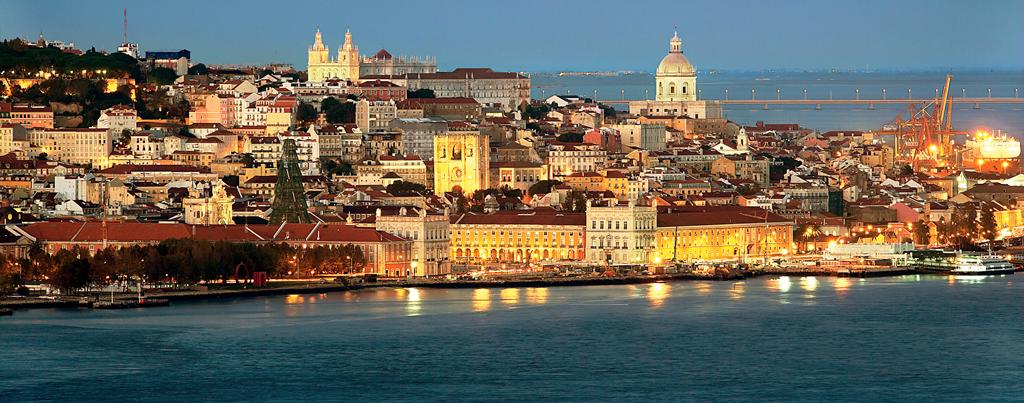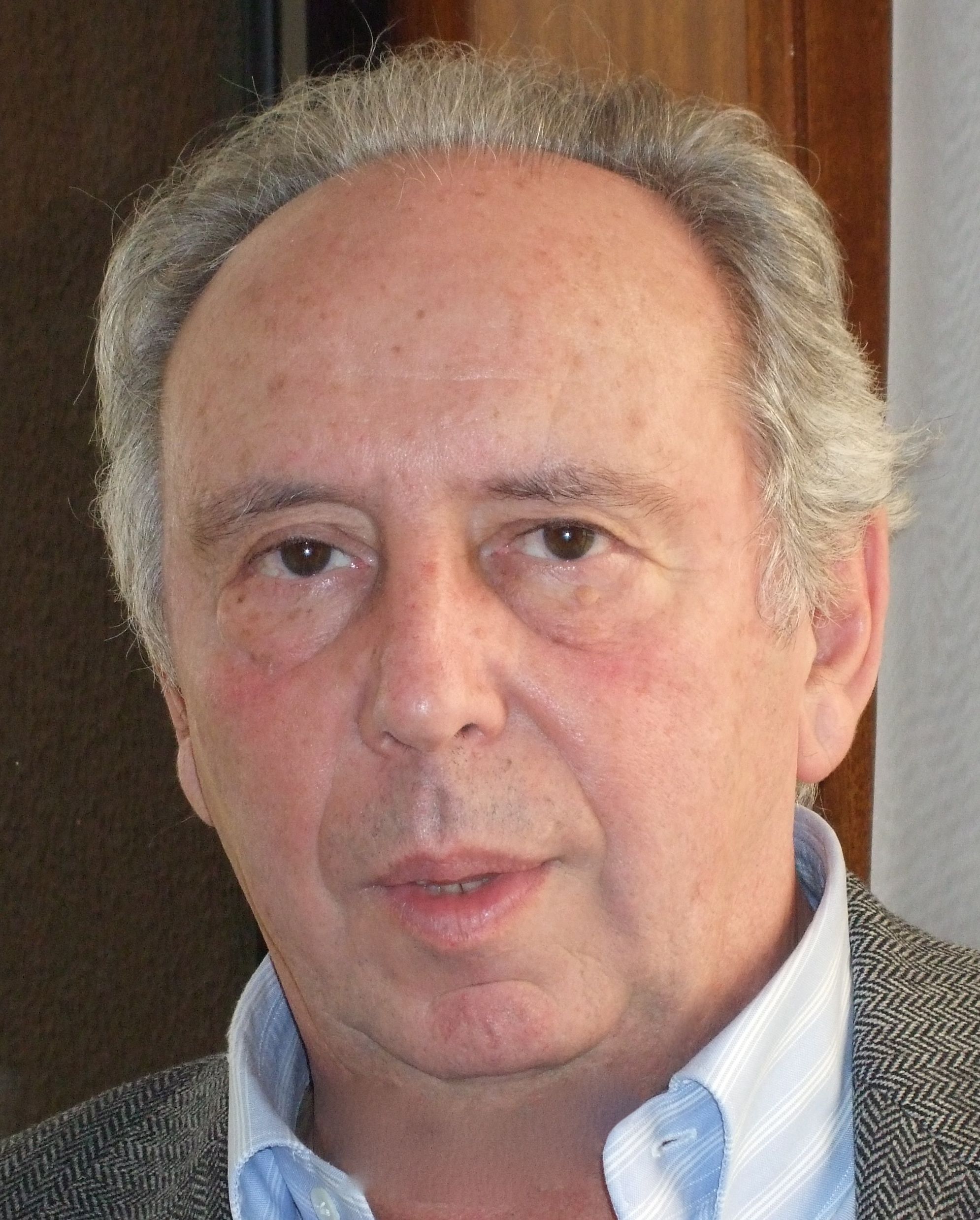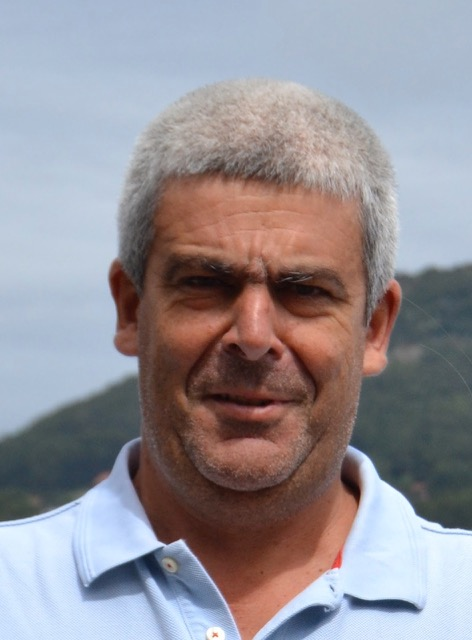
|
|


Keynote Speakers
Games with Morality
On the 13th of September

|
Luis Moniz Pereira, NOVA LINCS,
and |

|
Slides  Audio |
Robot saving princess demo Other demos |
Abstract
Agent ethics is an increasingly important subject attracting much attention. After the recent publication of Programming Machine Ethics, Springer SAPERE series, we believe that "Simulation and AI in Computer Games" can become a privileged vehicle for the displaying, playing with, and teaching of interactive agent morality.
Indeed, in recent years systems or agents have become ever more sophisticated, autonomous, and act in groups, amidst populations of other agents, including humans. Autonomous robots or agents have been actively developed to be involved in a wide range of fields, where more complex issues concerning responsibility are in increased demand of proper consideration, in particular when the agents face situations involving choices on moral or ethical dimensions. As these demands become ever more pervasive and ubiquitous, the requirement that agents should function in an ethically responsible manner is becoming a pressing concern.
Accordingly, machine ethics, which is also known under a variety of names, such as machine morality, computational morality, artificial morality, and computational ethics, emerges as a burgeoning field of inquiry to attend to that need, by imbuing autonomous agents with the capacity for moral decision making.
Clearly, machine ethics brings together perspectives from various fields, amongst them: philosophy, psychology, anthropology, evolutionary biology, and artificial intelligence. The overall result of this interdisciplinary research is therefore not just important for equipping agents with some capacity for making moral decisions, but also to help better understand morality, via the creation and testing of computational models of ethical theories.
Simulation and AI in Computer Games can contribute to and spur this newly arising domain, by providing instruments to design, generate and display interactive behaviour in moral situations, and thereby enable single- and multi-player games involving moral evaluations and decisions. Such games might be used as well for testing ethical theories, and for enhancing moral education with attending explanation and justification.
Our talk will address these agent morality issues and provide graphical demos to illustrate them, one of which about a moral robot saving a princess in distress, others on interactive moral decision making concerning "trolley problem" moral dilemmas, all taken from the above mentioned book, where further details will be found.
It is our hope to draw attention and contribute to the GAMEON community's interest regarding the subject of "Games with Morality."
Curriculum Vitae Luís Moniz Pereira
Luís Moniz Pereira, born in Lisbon in 1947, is a Professor of Computer Science (retired) at Universidade Nova de Lisboa, and founder and director of CENTRIA (1993-2008), the Centre for Artificial Intelligence at the same University. He was elected a Fellow of the European Coordinating Committee for Artificial Intelligence (ECCAI) in 2001, received a doctor honoris causa degree from the TU Dresden in 2006 and has been part of the Board of Trustees and the Scientific Advisory Board of IMDEA, the Madrid Advanced Studies Software Institute, since 2006. He is the founding president of the Portuguese Artificial Intelligence Association (APPIA), and serves on the editorial boards of various scientific journals. His research, which he has presented in hundreds of publications, focuses on knowledge representation and reasoning, logic programming, and the cognitive sciences. Currently, he is affiliated with the NOVA Laboratory for Computer Science and Informatics (NOVA-LINCS). More detailed information, including his awards, teaching and publications, can be found at http://centria.di.fct.unl.pt/~lmp/
Curriculum Vitae Miguel Calejo
Miguel Calejo, 54, currently runs InterProlog Consulting, his small company dedicated to the application of artificial intelligence tools to real world problems. Over the years he has developed a number of user interface generators and logic programming environment tools.
Electrical engineer (University of Porto 1984) and PhD in Computer Science/AI (New University of Lisbon 1992, with a thesis on declarative logic program debugging). IBM Portugal Prize 1990, Microsoft Portugal/web 3rd prize 2000. Founded Servisoft (www.servisoft.pt, a distributor of computer products), Declarativa (www.declarativa.pt, consultancy and software development), BookMARC (software for libraries), Coherent Knowledge Systems (www.coherentknowledge.com, USA, advanced AI tools) and Renting Point (www.rentingpoint.pt, portal for B2B and B2C renting). Member of the AI Center at UNL ( http://nova-lincs.di.fct.unl.pt ). Has taught Java and web development at Universidade Portucalense and Universidade do Minho, north Portugal. Served as President of the Portuguese AI Association, 2012-2015 (appia.pt). Member of the ISO/IEC JTC1/SC22/WG17 (Prolog standardization) group.
More detailed information at http://www.calejo.com
Through the Looking-Glass: Gaming Pre-Earthquake Lisbon, Posthuman History and the Crisis of Humanities

|
Paulo Simões Rodrigues |
Abstract
Through the Looking-Glass: Gaming Pre-Earthquake Lisbon, Posthuman Heritage and the Crisis of Humanities is based on the conviction that virtual reality technology is dramatically changing the way we perceive and represent reality in the 21st century, just like what happened with the discover of the geometric perspective in the 15th and 16th centuries. As with the perspective, the virtual expands human consciousness making intelligible, objectual and experiential phenomena and dimensions of reality that hitherto belonged only to the realm of ideas. Virtual heritage or cyber-heritage, like the virtual recreation of the past, are examples of that dramatic change, a true revolution, as I intend to demonstrate taking as a case study he project City and Spectacle: a view of Pre-Earthquake Lisbon.
Developed in the Centre for Art History and Artistic Research (CHAIA) of the University of Évora since 2008, by a team to which I belong, together with Helena Murteira and Alexandra Gago da Câmara, the project City and Spectacle: a view of Pre-Earthquake Lisbon aims to recreate the city of Lisbon in the eve of the 1755 earthquake using the virtual worlds technology, namely Second Life technology in its open source Open Simulator (OpenSim) version. Our aim is to virtually recreate the memory of a historical reality and the material heritage that disappeared during the earthquake and the reconstruction of the city. One of the innovations introduced by this project is the understanding of the virtual recreation not only as an illustration, but also as a research tool, a laboratory of the history of the city. A digital laboratory that enables us to create a body of information by the intersection of different types of historical sources, from textual to iconographic, and to verify the historical hypothesis resulting from the interpretation of the crossover of that same sources. In this lab, the use of Second Life technology nullifies the separation between the 3D modeling process and its viewing by creating an immersive space that allows a dynamic interaction between researchers (in digital technology, virtual worlds, 3D technology, the city's history and architecture, art history and archeology), and between researchers and users. The interaction between researchers allows for the direct monitoring of the creation of 3D models, and its actualization in real time and at a low cost.
This engagement between researchers, users and the virtual city model is a gamification strategy that, in this case, is applied to the definition of a co-participation and sharing research methodology, innovative in terms of knowledge production and transfer. But, at the same time, because it is a breakthrough, this gamification strategy represents a confrontation with the very ontological foundations of the fields of knowledge involved, particularly of the Humanities, based predominantly upon the principle of the authority of an universal transcendental reason, which is here put into question by the sharing dynamics of the knowledge production process. This confrontation is forcing the Humanities to look up his reflection beyond the mirror.
The use of digital technology has intensified the so-called Humanities crises, although, within this context, crisis can be understood as change, as an opportunity to use technology in order to reach new ways for the Humanities to perceive and intervene the/in reality, new research methodologies, and new ways of cognition, of knowledge production and transfer. We will do this, taking as a starting point the gamification and its possible contributions to the use of technology as a research tool and methodology for the Humanities. Our goals are to emphasize the importance of collaboration and co-research in its development, to promote a new inter-disciplinar relation with Sciences and Arts, and to use it to achieve a new understanding of heritage: as a way to create new affirmative bonds between past and present, heritage and life. A posthuman way as Rosi Braidotti put it: with a “more complex schemes of understanding the multilayered form of interdependence we all live in” (https://www.history-culture-modernity.org/articles/10.18352/hcm.412/)
Curriculum Vitae
Paulo Simões Rodrigues is an Art Historian, Assistant Professor in the History Department of the University of Évora, Director of the Centre for Art History and Artistic Research - CHAIA (www.chaia.uevora.pt) of the same university, coordinator of the PhD network HERITAS - Heritage Studies, chef editor of the on-line journal MIDAS - Museums and Interdisciplinary Studies (http://midas.revues.org/?lang=en) and member of the scientific committee of the journal Gardens & Landscape of Portugal (http://www.chaia_gardens_landscapesofportugal.uevora.pt/index%20home%20presentation.htm). He is specialized in Heritage History and Theory, Art Historiography and 19th-20th centuries Art History. Most recent publications: & Murteira, H. (2016), “Lost Cities in the Digital Era: The case of pre-earthquake Lisbon”. In Bostenaru Dan, M., Craciun, C. (Ed.), Space and Time Visualization. Springer; & Câmara, A. G. da, Murteira, H. (2016). “City & Spectacle: A Vision of Lisbon Before the 1755 Great Earthquake”. In Hoppe, S., Breathing, S., Messemer, H. (Ed.), Virtual Palaces, Part II. Lost Palaces and their Afterlife. Virtual Reconstruction between Science and Media. Munchen (http://www.courtresidences.eu/uploads/publications/virtual-palaces-II.pdf); & Veiga, A., et. al. (2015). “Micro-analytical study of two 17th century gilded miniature portraits on copper”, Microchemical Journal, vol. 123, 51-61; & Telles, P. D. (2014). “Alexandre e o corpo eterno do rei”. In Alcalde Martín, C., Ferreira, L. de N. (Ed.), O Sábio e a Imagem. Estudos sobre Plutarco e a arte. Coimbra; (2011) “O Conde Athanasius Rackzynski e a Historiografia da Arte em Portugal”, Revista de História da Arte, 8; (2010) “O Longo Tempo do Património. Os Antecedentes da República (1721-1910)”. 100 Anos de Património. Memória e Identidade. Portugal 1910-2010. Lisboa.












